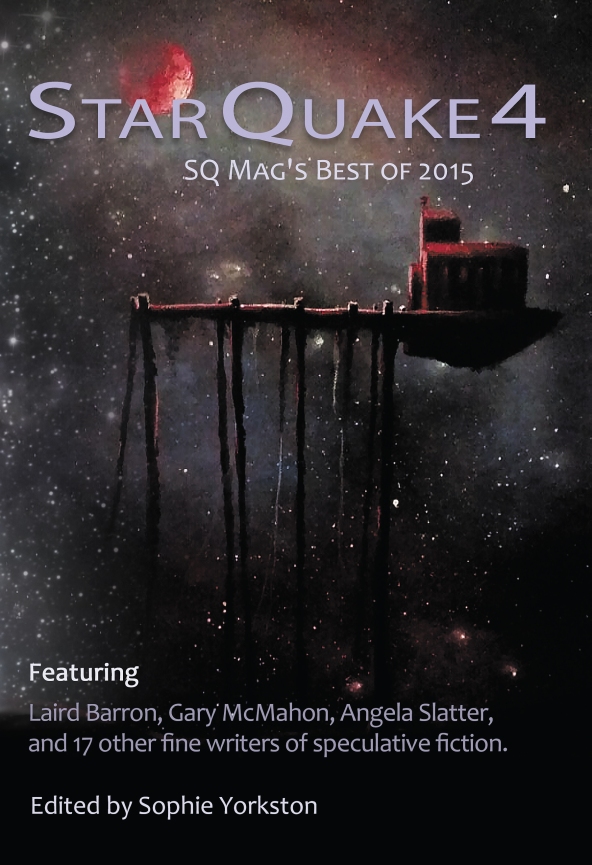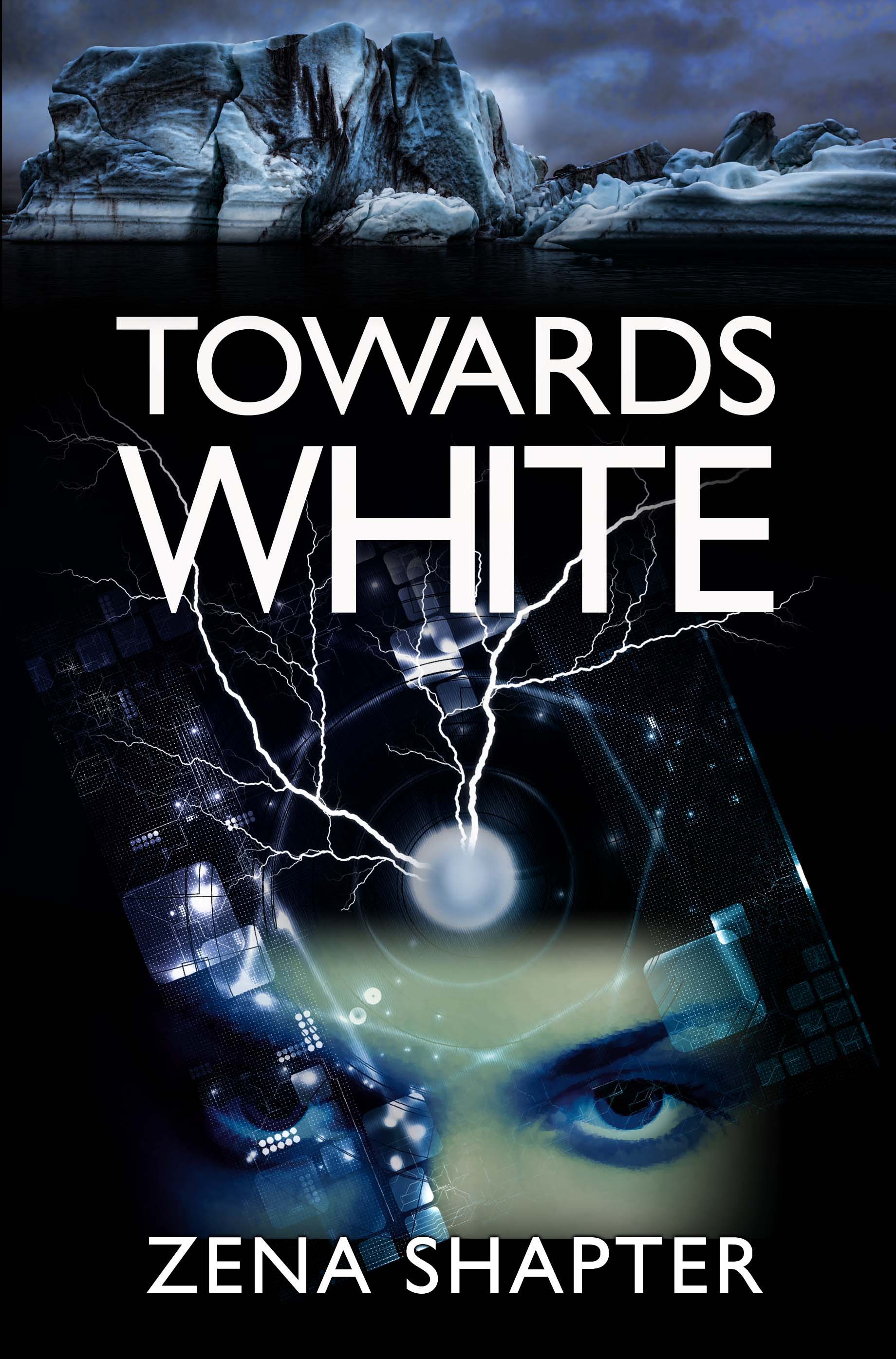Edition 6: Serial Fiction: Intangible (Part 1 of 6) by A. A. Garrison
In part one, we meet Hack, a shaman who deals in intangibles. He can acquire what it is you need. His customer lives behind a mask in a chequered castle. The most important task: to make his mark. SY
I. September 7th, 1989
The shaman is named Hack, and he does not work for free.
He leans alongside an empty guardhouse beside a great gate, awaiting his client’s dispatch. The hilly countryside lies pastorally still, so much a postcard. His wintry hair reaches in the breeze, bald pate white with sun. A tattered overcoat mimics his hair, lifting in identical pattern. His appearance suggests nothing of a miracle worker.
He moves into the guardhouse’s lee, stilling his living clothing. After tamping a cigarette, he burns it without fire, and tokes, smoothing his map of wrinkles. The smoke rises gamely as a whine nears from beyond the hump of iron gating. A golf cart.
The gates whir open and the cart jerks to a stop, feet from Hack. The driver, a bemused middle-aged man in charcoal, looks Hack up and down.
“Sir?” he asks, with the expected couth.
Hack answers with his eyes.
“You are the dealer?”
“I am.”
The driver opens the cart’s half-door and waves Hack inside. “Find the seatbelt to your right.”
Hack finds the seatbelt and latches the pygmy door. The cart makes for the peaky mansion which comprises the horizon.
~~~
The road terminates at a roundabout and a massive fountain, blacked in the mansion’s arbor. A marble stairwell services baronial double doors, red carpet spilling in a giant tongue. The lawn is a jungle of greenery, topiary fields devouring the distance, flowers in their thousands. The cart stops.
“Extinguish your cigarette, please,” the driver drones, and mounts the stairs.
Hack quits the cart and drills the Marlboro into a sand-filled vase, the butt joining a little cemetery. The mansion’s doors breathe air-conditioning.
Hack follows the driver inside, his brogans clomping terrazzo tile. The foyer is crammed with highbrow art and period furniture, sculpture and canvas dominating, a brilliant crystal chandelier gleaming in the room. Hack is neither offended nor impressed.
The two leave the foyer for a carpeted hallway, Hack’s shoes becoming mute. Arched doorways line the walls, none open. One births a buxom maid who meets neither man’s eyes. Houseplants soothe the space, far too many, as if to conceal something.
The driver shows Hack to a second hall, a labyrinth of arches and Dalbergia and endless floor, identical to the first. There is a man in servant’s liveries and another maid, the two ignoring perfectly the passing men. Hack and the driver are ghosts.
Deep in the maze, they at last enter a dark, windowless room. Black metal doors create the rear wall, reflecting squat versions of the men. The driver produces a fist-sized key ring heavy enough to satisfy each passed door; it seems he does more than drive. The man selects a key and slots it, parting the doors. An elevator.
“After you, sir,” he says to Hack, extending a hand.
Hack enters and the driver too, thumbing a button. The doors close. The car goes down. There is no music.
~~~
After six stories, the car reaches a polite stop. The doors part to a barrage of checkered squares: the cave-like hallway is a duo-toned screw, from the floor tiles to the ceiling, twisting wonderfully, a faraway door at its tip. The walls are bare save for several framed pictures, each depicting more checked patterns.
“Your client awaits, sir,” the driver says, not leaving the elevator.
Hack steps into the grotto, his footfalls again audible. The elevator closes behind him, the driver consumed by the merging doors, and Hack is alone. The car hums skyward.
Hack’s footsteps echo down the hall and to the door, finding it covered with cabalistic glyphs that he’s seen before. The calligraphy measles the wood, resembling a splayed collection of Cs and Ys. Human noises are a murmur from inside; with what could be crying.
The hinges moan, and the door opens to more checkers and contorted geometry. The room beyond is domed and preposterously large, its cobbled walls evocative of prisons Hack has known. Burnt light issues from an unseen source, allowing shadows. An ancient-looking desk dominates the space, cut in perfect circularity, behind it a man-shape, the source of the lamentation. The light catches a skein of checkered clothing and flowing auburn hair, the face nascent white.
“H-hello, shaman,” calls a ruined voice, breath hitching. The dome enlarges the words.
“Salutations,” Hack calls from the doorway.
The shape stirs, lending it form: a man, large even in sitting, shoulders squared like hewn stone. His pearly face displays a caricature of sorrow: brows upturned, a yawning frown, a cobalt tear on a porcelain cheek. A mask, Hack sees. Tragedy.
“J-join me,” the client sobs through his mask, indicating a chair set before the desk. His affected mouth remains still.
Hack sits, and the two hold a brief pause, spared silence only by the low weeping.
“I’m sorry,” the client says finally, stuttering the s into many. “I was just…studying you. I expected someone…”
“Less derelict?” Hack offers.
The mask nods. “If you don’t mind my saying.”
” ‘To be prosaic is to be unseen,’ was my master’s motto.”
“And I would agree.” More sobbing, then, “Shall we get down to business, Mister Hack?”
“I await your proposal.”
The client shifts in his seat. “As I understand, you deal in…intangibles.”
Hack nods, once.
“And are there…stipulations to your service?” the client asks, his worldly pause saying all that needs saying.
“No stipulations.” Hack’s face stays as fixed as his acquaintance’s. “Inquire openly.”
A hand rises over the table, holding a rolled vellum. Hack accepts and opens the parchment, breaking an anachronistic seal. Three words lie over the foxed page, in a flourished hand befitting the house.
Hack reads twice; returns the vellum. “That’s a tall order.”
The client snorts behind his mask. “So, I have discovered the great Hack’s limits?” A deprecatory note.
“Tall, but not impossible,” Hack replies, firm. “It will simply take time.”
The client’s voice hardens. “How much time?”
“Depends.” Hack admires the domed ceiling, stroking his Van Dyke beard. “No less than six, maybe ten or more. It all hinges on—”
“Excuse me—six?”
“Six months.”
The client shrinks in his chair, squeaking the bearings. “There’s no faster way?” he says evenly, almost veiling his displeasure.
“These things are like flowers, my friend,” Hack says, sounding as exhausted as he is. “They require cultivation and care, and more time still to coax into bloom. There are barriers to penetrate, bridges to be crossed. It’s not like taking money from a bank.”
“Indeed,” the client sighs. He leans in his chair, mirroring Hack’s composure. “Name your fee.”
Hack speaks to the desk: “Ten million.”
The sobbing stops. “Ten million.”
“Plus appropriate accommodations,” Hack adds, steel in his words. “A safe place, on a meridian—”
The client raises a hand. “A cabin awaits you, prepared to code.”
Hack’s brow raises, but only slightly. “Then we have an agreement?”
“We do,” the client says, and extends the raised hand.
Hack accepts the hand, and delivers two stiff pumps.
“You start now, shaman,” the client sobs. “A jet awaits you.”
II. September 8th, 1989
The entity known as Hack negotiates the nether with the dexterity of a bird in flight. Abdicating flesh, he becomes an amorphous ball of light, a living star.
As men watch television; as bees sample flowers; as wind travels the earth. This is how Hack navigates the Worlds, traversing various universes and nothing-spaces before arriving in that which he calls home. Space peels like an onion, and Hack moves without moving; he is not on Earth, then he is. Shifting to the appropriate frequency, he arrives at the scene of his corporeal work: America, fall, 1989.
There, Hack begins the search for a subject, work akin to finding a needle in a haystack of haystacks. Like a hound sniffing game, his consciousness travels outward, caroming between the continent’s many females with pinball speed. The results are a psychic onslaught: one woman is bound in ego, one is a future murderer, one is a hollow, soulless thing that has no place among the living. He samples thousands, millions, and then stops: a match is found, one possessing the energy he has been indentured to steal.
With that, Hack descends, to the territory known as North Carolina.
Here in the nether, matter is dispersed into energy, its illusion of solidarity shed like a skin. Immersed in this lightshow wonderland, Hack sails amongst similar descriptions of mind, though none are as brilliant and chromatic as he. Some are red, some gray. Some stutter between colors like a failing light-bulb. Others are pure black, more void than substance. A moving length of brown that may be an automobile. A dazzling white gooseneck suggesting a streetlight. Translucent geometry indicative of buildings. Then comes a glowing constellation of light-bodies, people congregated in mass: an alehouse. Hack enters.
A scream of sentiment: love and hate, lust and anger; resentment, pride, wanting; ill-will, honesty, guile. Psychoactives course through most patrons, stewing their base emotions into raging mutants. Several men stir at Hack’s unseen passing, as though brushed by a wind. They emanate myriad colors, but most reflect the soiled shades of their chemical ingestions, colors that can only detract. Hack’s subject is easy to find.
The young woman’s aura phases between a blazing emerald and blinding white, wholly disparate from the others. Accessing it, Hack finds she is of twenty-one years, just able to imbibe the stout concoctions that she serves. So young, so fresh, but she has grown old before her time, made precocious by the world’s audacities. Excellent.
Employing the eternal Now, Hack shuffles through her past and future, so much a videotape in fast-forward, and he likes what he finds. After considering his possible courses of sowing and harvest, of which there are infinite, he settles on the most promising. He can use her mother, he sees, along with a symbol from her culture, a deceased leader…
Satisfied, he repairs to his body like a toad retrieving its tongue, his frequency lowering, his awareness shrinking, and—
Hack opens his eyes and coughs loudly, exploding the cabin’s bubble-skin quiet. A feeble candle interrupts a surround of darkness, its flame clinging to the last of the wick. The floorboards hard beneath him. A hillock of folded clothes nearby.
Naked as the prehistoric day he was born, Hack stands from the circle of glyphed stones, shivering. He remembers his limbs and their use, stretching and bending and trading kicks between legs. His head rings; the transition to flesh is akin to cramming the ocean into a balloon, and it never gets any easier.
Hack blindly assumes his clothing, the warmth gloving him. Using the dying candle, he lights the fireplace, employing the stove-lengths and kindling provided by his client. The fire soon rages, and Hack’s stomach growls—he’s ravenous. Astral travel is hungry work, as it were.
Still trembling, he slides a large cordwood crate from the corner, also compliments of the client. It offers a cache of his requisite food: vacuum-sealed breads and cheeses, freeze-dried vegetables, jugs of water. Enough for months, perhaps a year. His stomach squeals as he upturns the crate over the dining table, spilling an edible rain. He eats the feast as-is, greedy hands breaking cheese and bread.
Fifteen minutes later, Hack holds court with the meal’s remains, his stomach working warmly. With his body placated, his mind returns to the task at hand, and the mountain of knowledge gleaned from his last commute through the nether: the subject, her mother, the sowing, Abraham Lincoln.
Three days for recovery, he decides. Then, the courting begins.
A.A. Garrison is a twenty-nine-year-old man living in the mountains of North Carolina. His short fiction has appeared in dozens of zines, anthologies, and journals, as well as the Pseudopod webcast. His horror novel, The End of Jack Cruz, is available from Montag Press. He blogs at synchroshock.blogspot.com.
Posted on April 12, 2014, in Edition and tagged a. a. garrison, edition-6, fantasy, fiction, serial, supernatural. Bookmark the permalink. 5 Comments.















Pingback: Edition 11: Serial Fiction: Intangible (Part 6 of 6) by A. A. Garrison | SQ Mag
Pingback: Edition 7: Serial Fiction: Intangible (Part 2 of 6) by A. A. Garrison | SQ Mag
Pingback: Edition 8: Serial Fiction: Intangible (Part 3 of 6) by A. A. Garrison | SQ Mag
Pingback: Edition 9: Serial Fiction: Intangible (Part 4 of 6) by A. A. Garrison | SQ Mag
Pingback: Edition 10: Serial Fiction: Intangible (Part 5 of 6) by A. A. Garrison | SQ Mag